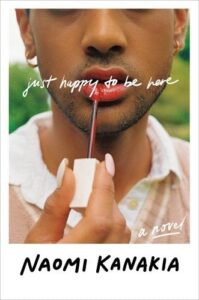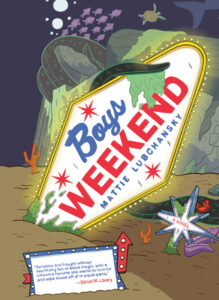Buy this from Bookshop.org to support local bookstores and the Lesbrary!
Tara is the first trans girl to attend Ainsley Academy, an all-girls school. She finds it hard to fit in, especially considering that she’s also one of the few students of color. One place she does feel like she belongs is the Sibyls, an exclusive society within the school that values classical history. Tara’s passion is speeches throughout history, and she admires how the Sibyls stand behind their values and don’t seem to care what anyone else thinks about them. When she applies to join, though, she’s thrown into a controversy about who is allowed into this elite group for girls, and whether it should still exist at all.
This was an infuriating read. Tara is a young trans woman of color who seems to bounce between dealing with micro aggressions and macro aggressions; there’s almost no one she can just be herself around. Her parents are… somewhat accepting, but they often misgender her and question whether she’s sure enough about her transition to go on hormones. Tara desperately wants to be on hormones, but they live in a state where parents can have their kids taken away if they’re suspected of pushing them to transition. And because of their immigration status, they’re even more vulnerable. It’s not paranoia, either: they are reported at one point and interrogated by a state official.
Tara is used as a political pawn. Even people who are theoretically accepting just see as her as “the trans girl.” When she says anything that doesn’t match their idea of what a trans girl should be, they immediately push back against her, even when she’s just expressing her own insecurities. They seem more concerned about saying the right things than actually getting to know her. Even the trans guy at school uses her as an unwilling figurehead in his fight to take down the Sibyls for being exclusionary, ignoring that she loves the Sibyls and has no interest in dismantling the group.
Tara wants so badly to fit in, to be “ordinary”, and deals with a lot of internalized transphobia and racism. She doesn’t want to lead a charge against transphobia. She just wants to blend in.
I had to put down the book at some point because I was so full of rage on her behalf. The school administrators and teachers often have double standards for her: when it comes to benefits of being part of Ainsley Academy, Tara is technically part of the boys’ school. But when it comes to the drawbacks and discipline of students, she’s part of Ainsley. One of her teachers escalates from double standards to flat-out transphobic hate speech.
The Sibyls aren’t perfect, and in fact there are very good reasons to want to dismantle this not-so-secret society of rich women. But it is where Tara meets her first genuine friends, who treat her as an individual—including her crush, Felicity, who she gets closer and closer to. (Tara is bisexual, with a preference for women.) They’re all flawed people, and they may not always say the right thing, but they’re finally a place where Tara feels like she belongs and that people have her back—not for political reasons, but for her as a person.
Just Happy To Be Here has a long author’s note at the end with advice for trans girls, and that advice is not sugar-coated. It’s also frustrating that trans women and transfem YA is so new, and yet this author’s note feels even more urgent and dire than these books did a handful of years ago, when the first few trans YA titles were being published by mainstream presses. It’s horrific that it’s gotten even more dangerous to be a trans woman in the United States.
This was an emotionally harrowing read, full of non-stop transphobia—plus some added racism. It’s one I’m glad to have read, but I’m even more glad to be done.



